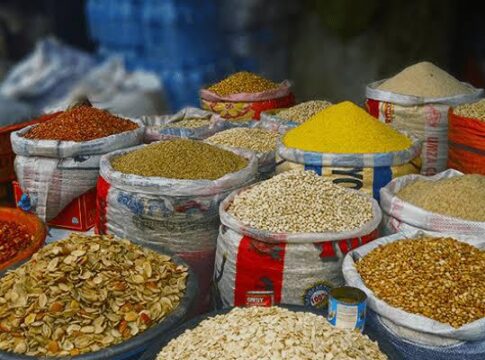Nigeriens are demanding more Nigerian goods than ever, even as diplomatic relations between the two neighbors remain tense. In 2024, Nigerian exports to Niger surged by 77.12%, reaching N82.38 billion, according to the latest figures from the National Bureau of Statistics (NBS).
This growth drove total trade between the two countries to N91.92 billion, a sharp rebound from N50.48 billion in 2023, when political instability in Niger led to border closures and trade restrictions. Exports accounted for nearly 90% of the total trade, signaling a strong preference for Nigerian products in the Sahel nation.
Why Nigerian Goods Are in High Demand
The demand for Nigerian products is largely fueled by essential commodities such as agricultural goods, manufactured products, and petroleum derivatives. According to the NBS, Niger ranked among Nigeria’s key trading partners within ECOWAS, alongside Ivory Coast, Ghana, and Liberia.
One of the most notable exports was cigarettes, with Nigeria supplying N9.34 billion worth to Niger in Q4 2024 alone. Other key exports included processed food, textiles, and petroleum products. Meanwhile, imports from Niger (though significantly smaller) also rebounded, rising from N3.97 billion in 2023 to N9.53 billion in 2024.
Trade Resilience Amid Diplomatic Tensions
Trade between Nigeria and Niger has fluctuated dramatically over the past five years. In 2020, total trade stood at N6.69 billion before surging to N88.60 billion in 2021 and N95.76 billion in 2022. However, following Niger’s July 2023 coup, trade plummeted by nearly 50%, with ECOWAS-imposed sanctions including border closures and financial restrictions.
READ MORE: Congo and M23 Rebels Set for Direct Peace Talks Amid Mounting Death Toll
Despite these setbacks, Nigeriens continue to rely on Nigerian goods. The trade resurgence in 2024 suggests that economic necessity is outweighing political friction. “Trade is a lifeline for people on both sides of the border,” said an Abuja-based economist. “Despite political disputes, market forces will always find a way.”
What Nigeria Imports From Niger
Nigeria’s imports from Niger remain focused on raw materials and agricultural products. Fresh or dried dates led the imports at N956.68 million, followed by cement (N919.07 million), fresh strawberries, whole hides, and pine nuts. The rise in cement imports reflects a growing infrastructure boom in Nigeria.
Beyond Niger: Nigeria’s Growing Trade with Mali and Burkina Faso
Nigeria’s trade with Mali and Burkina Faso also expanded significantly in 2024. Total trade with Burkina Faso grew by 41.4%, from N12.92 billion to N18.26 billion. Exports accounted for most of this increase, rising to N18.20 billion.
Trade with Mali saw an even bigger jump, skyrocketing from N12.57 billion in 2023 to N199.21 billion in 2024. The most striking change was in Nigeria’s imports from Mali, which soared from N269.87 million to N183.79 billion. Experts suggest this shift may be due to increased demand for Malian goods or new trade agreements.
The formation of the Alliance of Sahel States (AES)—a bloc established by Mali, Burkina Faso, and Niger in September 2023—has further strengthened economic ties in the region. With the trio exiting ECOWAS in January 2024, their trade policies are evolving rapidly.




